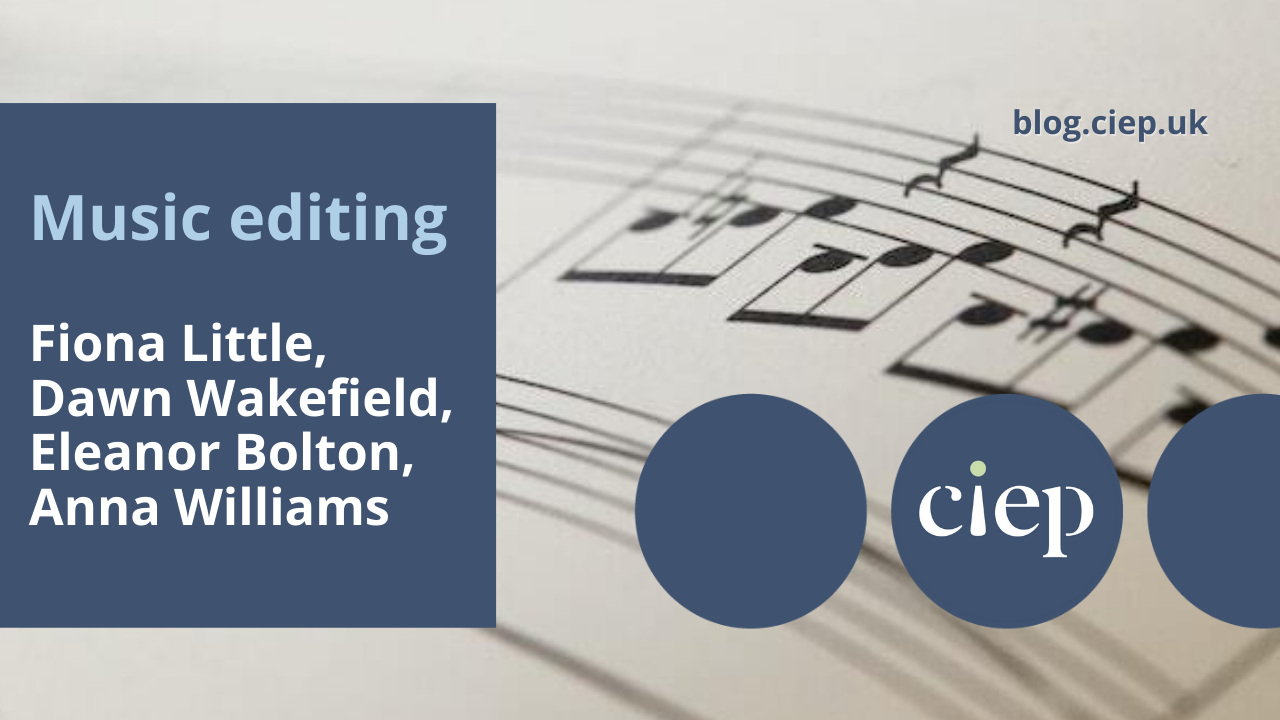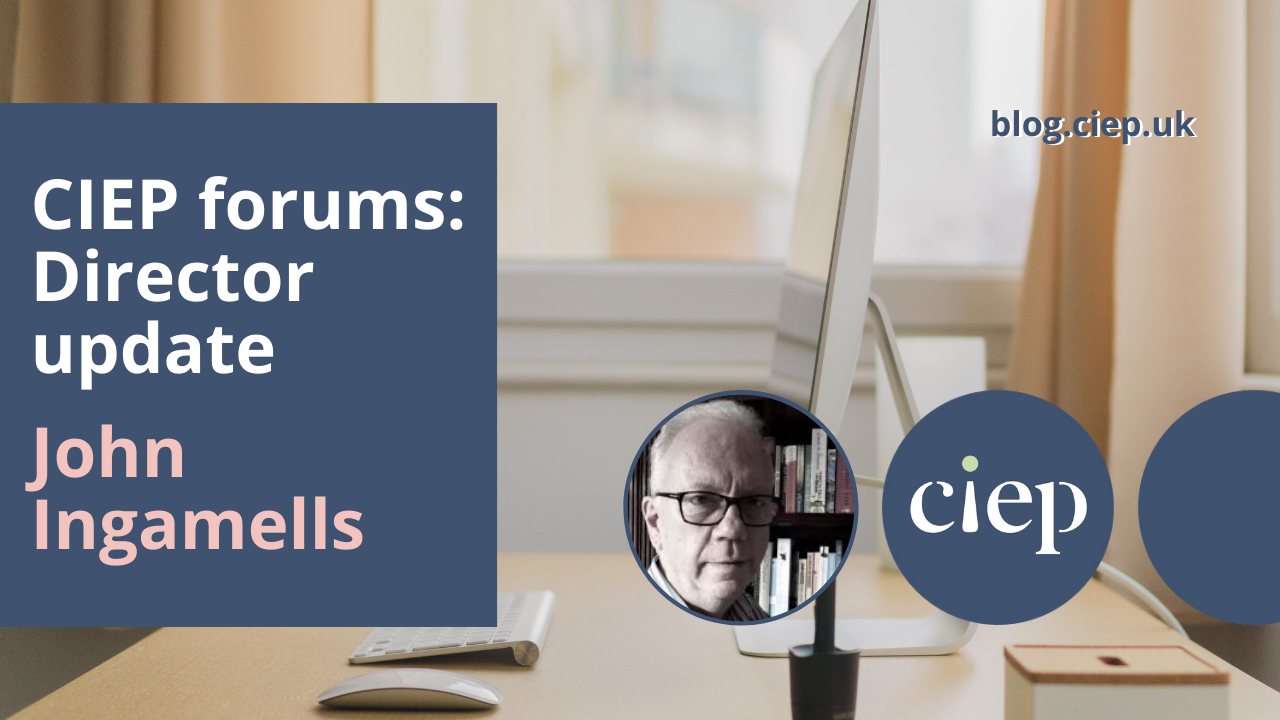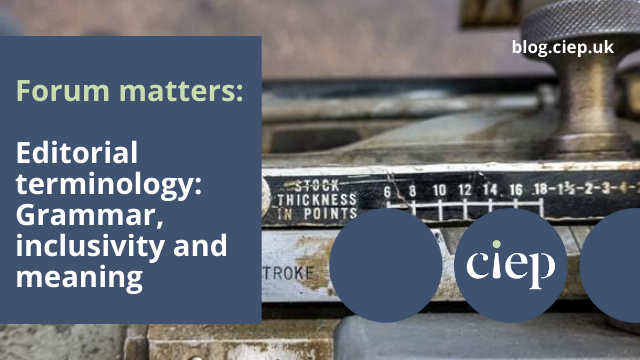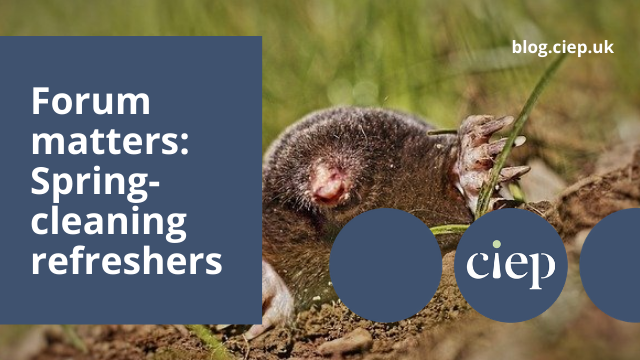This feature comes from the band of CIEP members who volunteer as forum moderators. You will only be able to access links to the posts if you’re a forum user and logged in. Find out how to register.
The topic of finding work is one that arises frequently wherever editorial professionals chat, and CIEP forums are no exception. Whether they are new to the field or are more experienced and seeking fresh opportunities, forum members often turn to other members for suggestions. And with most members needing to seek more work at some stage, everyone is usually willing to share advice and information.
Gaining experience
A recent discussion on how long it takes full-time freelance editors and proofreaders to get regular work covered lots of bases. The consensus seemed to be that building a freelance business takes time, and that it took several years for most to establish themselves in terms of a steady stream of work and adequate income.
Contributors to that discussion and others shared their experiences of how valuable word of mouth, cold calling, finding a niche, directory entries and having a website were. One mentioned the importance of local networking events, and there’s lots of information about networking within the CIEP on the CIEP website.
How someone goes about finding work may vary depending on their niche(s), but one discussion on finding academic editing work reinforced the importance of word of mouth and networking. The topic of packagers/agencies also came up in this discussion and in a more recent Newbie query, and while some editorial professionals find the rates low and turnaround times tight, they acknowledge that such work provides the opportunity to gain experience, which then attracts other clients. Several members suggested contacting faculty members and university departments who may have their own proofreading and editing needs and who may also be involved in publishing academic journals. University presses also got a mention.
Jobs in the marketplace
Members can find work in the Marketplace forum when other members post information about one-off jobs they have been offered but cannot take on. The time it takes ‘[CLOSED]’ to appear at the front of such posts is a measure of how quickly the work is taken up, so it’s a good place to check regularly in case something in your niche becomes available – before it becomes unavailable!
Members posting jobs usually take a few names of people who contact them directly and mark the post ‘[CLOSED]’ when they have enough responses. They will ask for some information – perhaps website/profile details and anything about your experience that may be relevant to the specific job. If you are the person posting the work, it’s helpful to read the pinned How to avoid post removal and Marketplace guidelines topics first.
Tests and testimonials
Sometimes members post about editing tests they have taken, or sample edits they have been asked to do. It’s worth noting that while a ‘poor’ performance in a test or sample edit may knock the confidence of a newbie, even experienced editors and proofreaders have ‘failed’ such editorial tests, and one discussion showed that while tests may match you with a potential client, one bad experience does not mean you’re a bad editor.
Keeping an up-to-date portfolio and collecting testimonials are other ways to set yourself up for finding work. In one discussion, the topic of better ways to organise a portfolio and the value of having a portfolio came up. In a discussion in the Fiction forum (which you will need to subscribe to), the value of testimonials and how they might be organised generated interesting responses.
CIEP guides and courses
Many forum members find CIEP resources helpful – directly or indirectly – in guiding them as they seek work, and some of these get a mention in the forums. One that newcomers to freelance life may find helpful is Sue Littleford’s Going Solo Toolkit and the CIEP guide Going Solo: Creating your freelance editorial business. Many other CIEP guides are useful in helping an editorial professional learn more about finding work, including Marketing Yourself: Strategies to promote your editorial business by Sara Hulse. You can find an overview of the CIEP guides here.
Finally, there’s training. Many new editors and proofreaders posting for the first time in the Newbies forum will be undertaking courses, but many experienced professionals also see courses as a vital part of their continuing professional development, making them more attractive to regular and new clients.
For up-to-date discussion about this and more, you won’t go far wrong when you network on the CIEP forums!
 About the CIEP
About the CIEP
The Chartered Institute of Editing and Proofreading (CIEP) is a non-profit body promoting excellence in English language editing. We set and demonstrate editorial standards, and we are a community, training hub and support network for editorial professionals – the people who work to make text accurate, clear and fit for purpose.
Find out more about:
Photo credits: open laptop by Glenn Carstens-Peters on Unsplash; smiling woman on laptop by Vlada Karpovich on Pexels.
Posted by Sue McLoughlin, blog assistant.
The views expressed here do not necessarily reflect those of the CIEP.

















